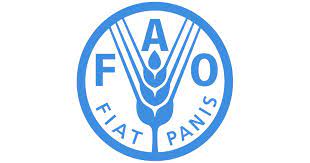The World Health Organisation (WHO) and the Food and Agriculture Organisation (FAO) have called for the need to improve hygienic practices in food and agriculture sectors of the country. Head of Mission and Representative of WHO, Nigeria, Dr Walter Mulombo, made this known at the commemoration of the 2022 World Food Safety Day in Abuja on Thursday with the theme: “Safer food, better health”. Mulombo said, the effects of food safety incident may have global negative effects on public health, trade and the economy. Mulombo, who was represented by the Deputy Country Rep, WHO, Alexander Chimber, called for the need to encourage practices that would reduce the emergence and spread of antimicrobial resistance along the food chain.
“There is no food security without food safety and in the world where the food supply chain has become more complex, the effect of food safety incident may have global negative effects on public health, trade and the economy. Nigeria needs to continually improve her food supply chains to prevent infectious and toxic hazards, microbial pathogens, chemical residues, biotoxins and other noxious substances from getting into our food,” he said. He, however, said the WHO would continue to support Nigeria in ensuring operationalisation of National Food Safety Policy and Implementation of guidelines working with FAO and other UN agencies. In his remarks, FAO Representative for Nigeria and the Economic Community of West African States (ECOWAS), Fred Kafeero, said effective food safety and quality control systems were key to safeguarding the health and well-being of the people. He said this would also ensure fostering economic development and improving livelihoods by promoting access to domestic, regional and international markets.
He said FAO was working with the Government of Nigeria in aflatoxin management and mitigation to protect people’s health and support the country’s efforts to boost exports of agricultural produce to external markets. According to him, everyone has a role to play from farm to table to ensure the food consumed is safe and healthy for a better tomorrow. He urged stakeholders and partners to play their roles and raise more awareness about food safety and its importance to the public health and the economy. Also, the UN Resident and Humanitarian Coordinator, Matthias Schmale, said food borne illnesses always hit the most vulnerable in society including children, the elderly and pregnant women. Schmale, who was also represented by the WHO Deputy Country Rep, Alexander Chimber, urged regulatory agencies of the food safety industry to diligently implement policy that will strengthen national food safety system. He said, “A principle of the UN is to leave no one behind. But we can only do this by improving food safety practices here in Nigeria and protecting these vulnerable populations.” NAN


